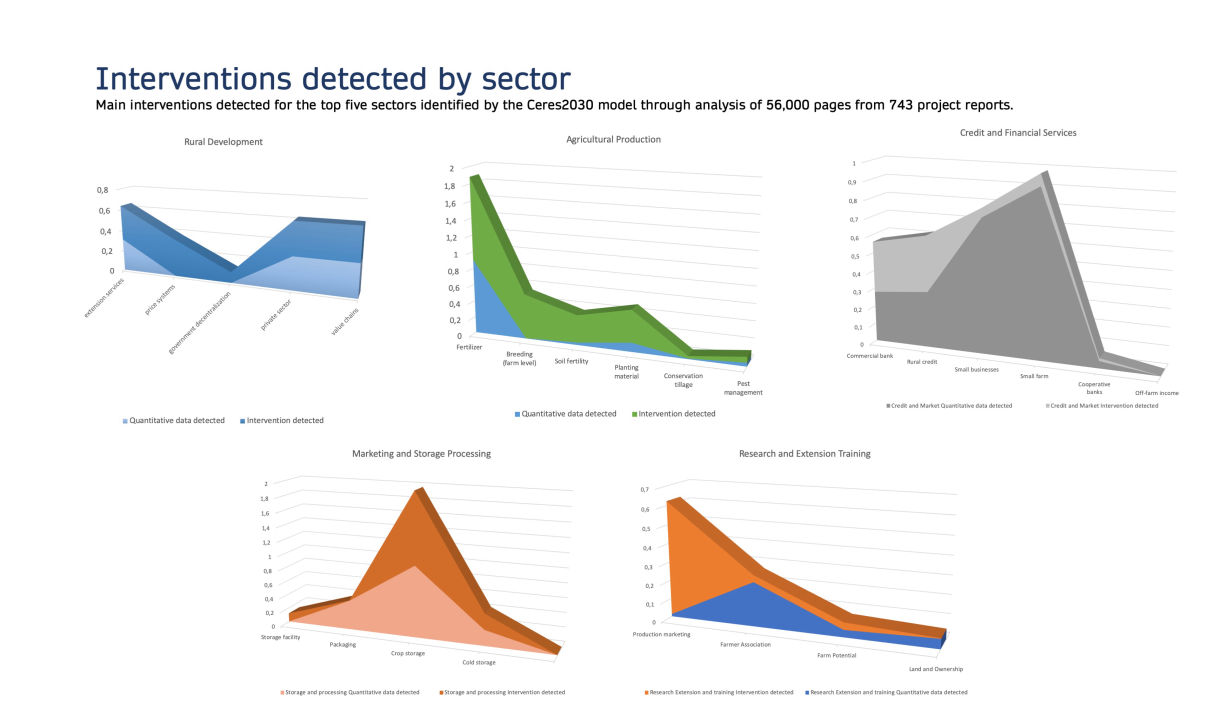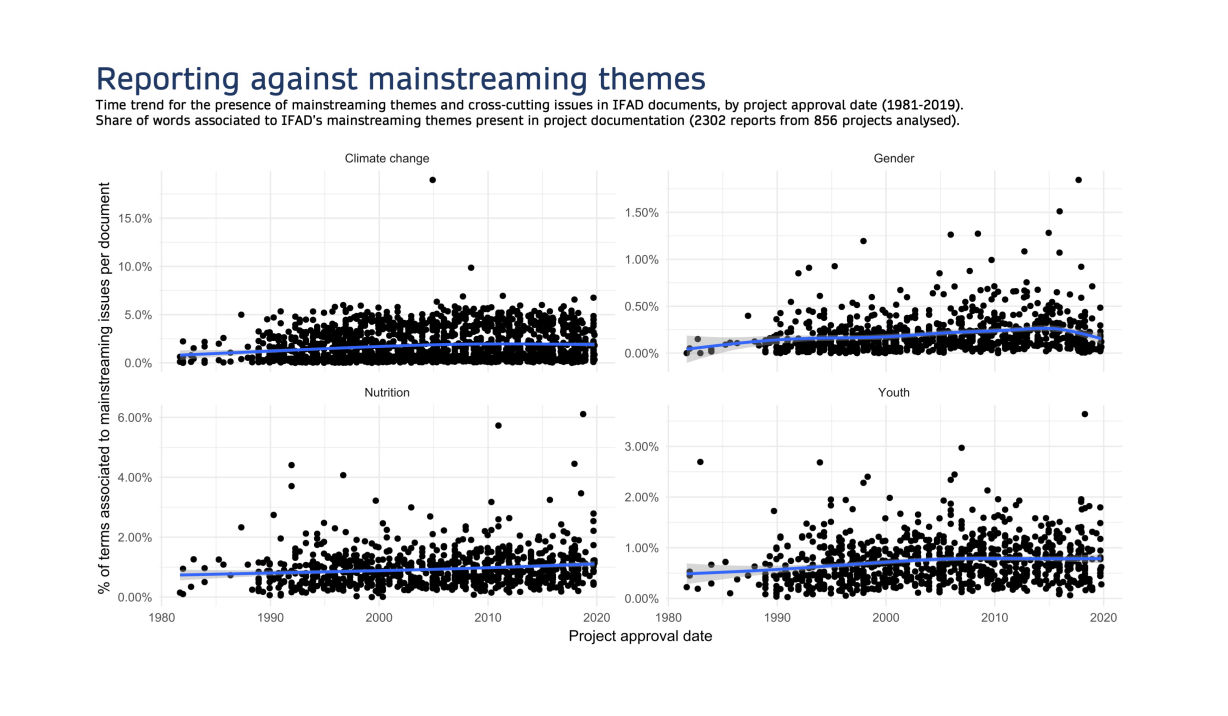A key lesson from this initiative is that effective machine learning is an iterative process that requires large amounts of data and resources to explore various approaches. It took extensive time to clean the data, given inconsistencies across documents. Project reports also contain a lot of extraneous information, which makes the data noisy and sometimes difficult to isolate what has really taken place. Nevertheless, this was an exciting project that allowed us to capitalise on existing data to uncover new patterns and gain additional knowledge. The applications for machine learning employed in this project can greatly support IFAD’s Development Effectiveness Framework, especially with knowledge generation, efficiency in corporate reporting, and building an evidence base to inform policy and the design of successful projects.


